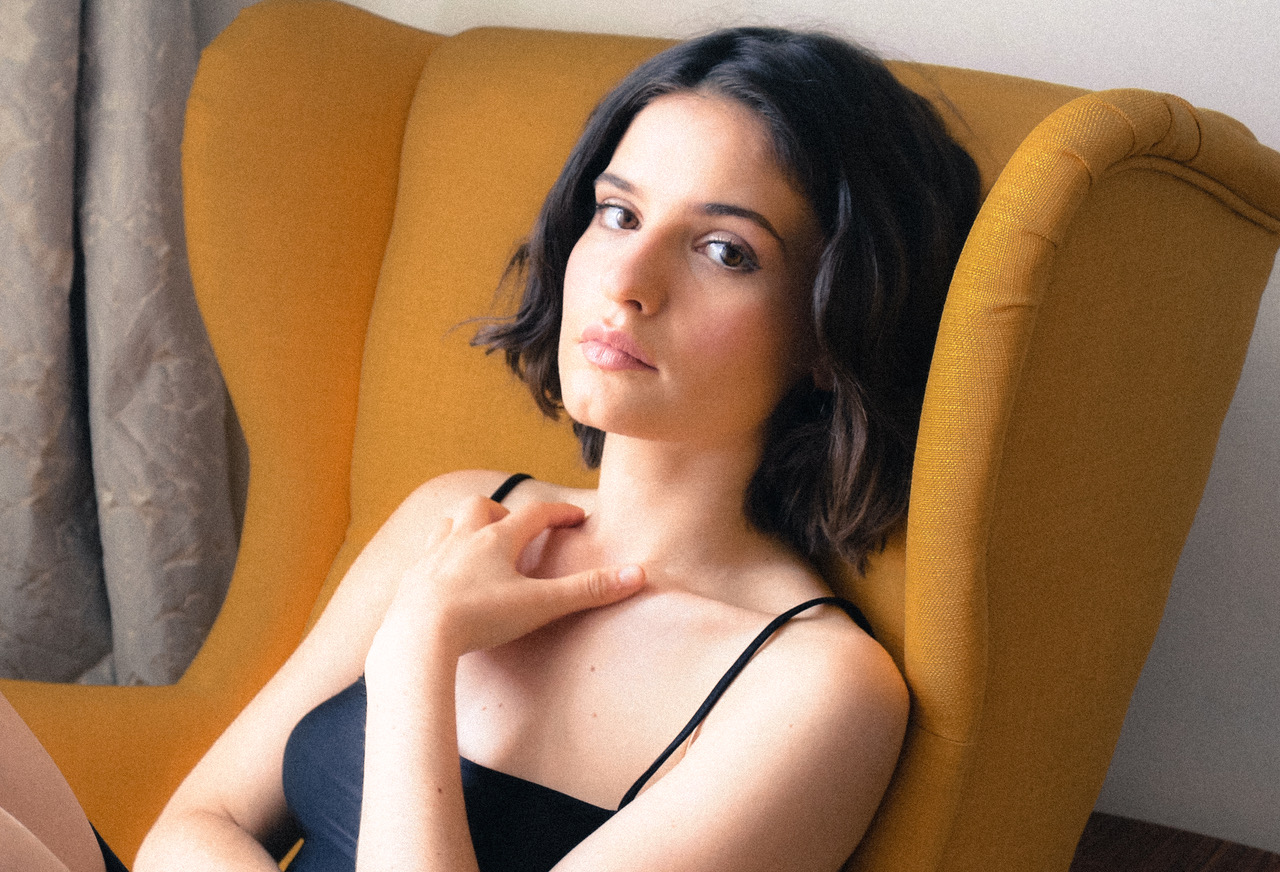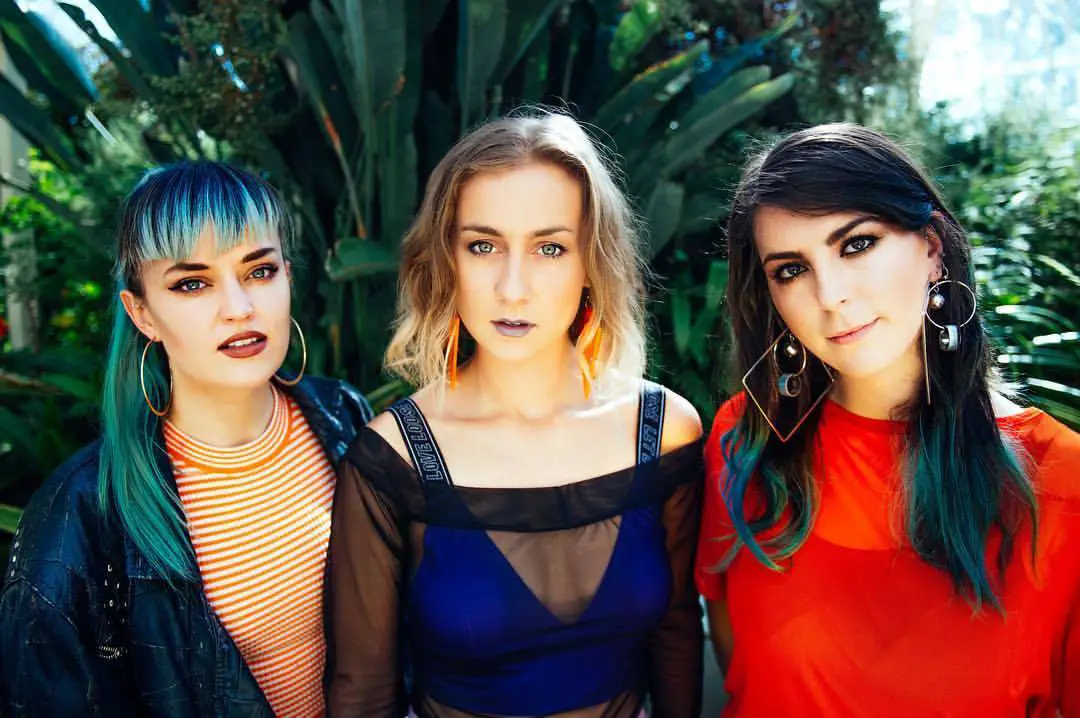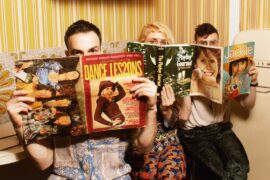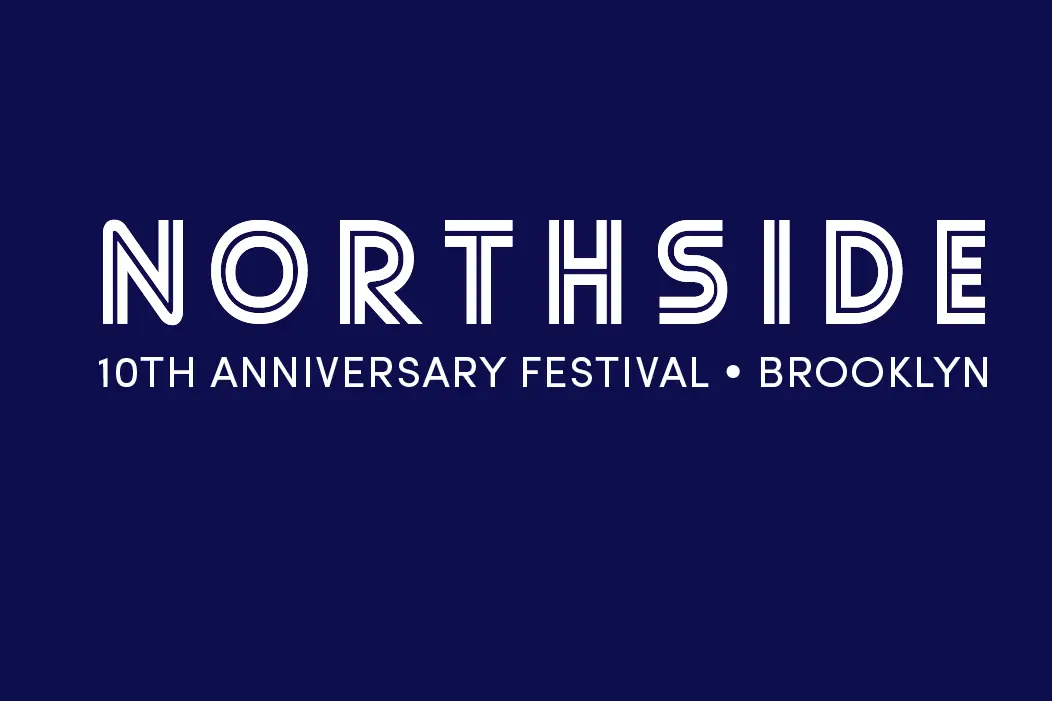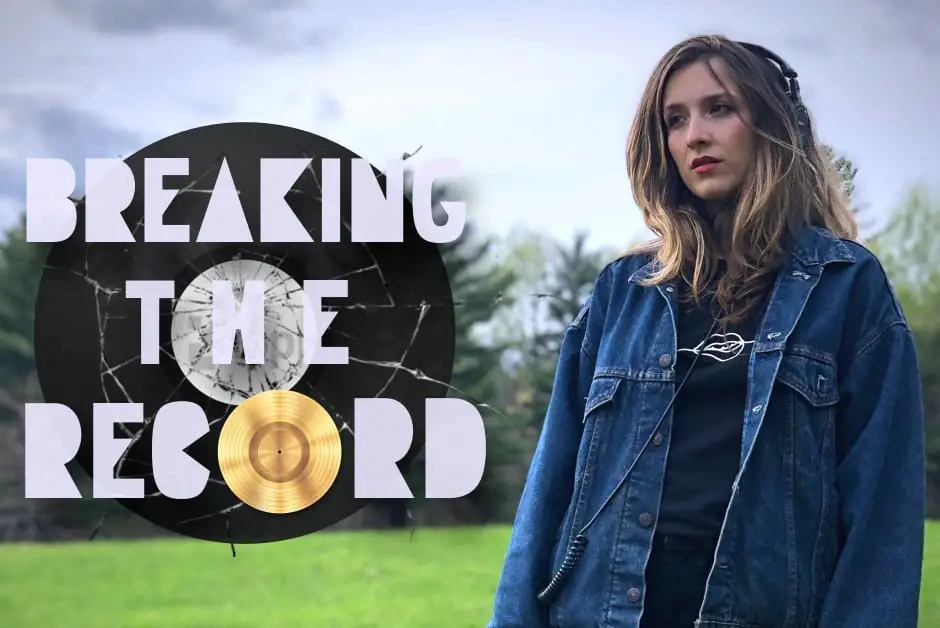Midwestern indie singer/songwriter Pictoria Vark met up with us at Treefort 10 to discuss navigating her early adulthood, touring full-time, and establishing a promising solo career in the wake of her debut album, ‘The Parts I Dread.’
Stream: “Wyoming” – Pictoria Vark
Sometimes I feel like life can happen very slowly, but also all at once. I feel like this is one of those all-at-once moments.
These past few years have been an endless barrage of change for everyone alive, but the youth of the world are essentially on their own as they come of age in truly unprecedented times. 23-year-old, Iowa City-based musician Victoria Park, who performs (and writes hilarious Tweets) as Pictoria Vark, has found herself in her own unique whirlwind — not only has she independently made a career out of her passions during a pandemic, but she just released her debut album, earning her critical acclaim from Pitchfork.
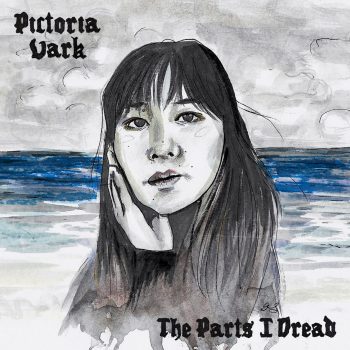
Written over several years as she transitioned from her teenaged years to young adulthood, Pictoria Vark’s The Parts I Dread (released April 8, 2022 via Get Better Records) validates tenderness and candid vulnerability as true bravery. Vark’s plainspoken, self-aware songwriting sheds light on the beauty and poetic justice within growing pains.
She initially draws listeners into her richly emotional inner world on stripped-down opener “Twin,” where her pensive lyricism and sparse instrumentals (in this instance, a simple yet gorgeous bass line) bring early memories of heartbreak into perspective with nostalgic reflection rather than spurned rumination.
Throughout the record, she continuously mines beauty and chance from discomfort and heartache, providing her cathartic release so that she cannot simply make peace with the past, but so that she can face the uncertainty of her current journey. As young and afraid as she may be as she finds her footing in the adult world, Vark’s humble wisdoms accrued from time and reflections on lived experience ground her even on an ever-changing path.
On a sunny afternoon in Downtown Boise, hours before her second Treefort set of the week, Vark and I sat down for a candid conversation about growing up, finding home, where she’s been, and where she’s going next.
You can belong anywhere if you make the time and the space to make a place your home.
— —
:: stream/purchase The Parts I Dread here ::
Stream: ‘The Parts I Dread’ – Pictoria Vark
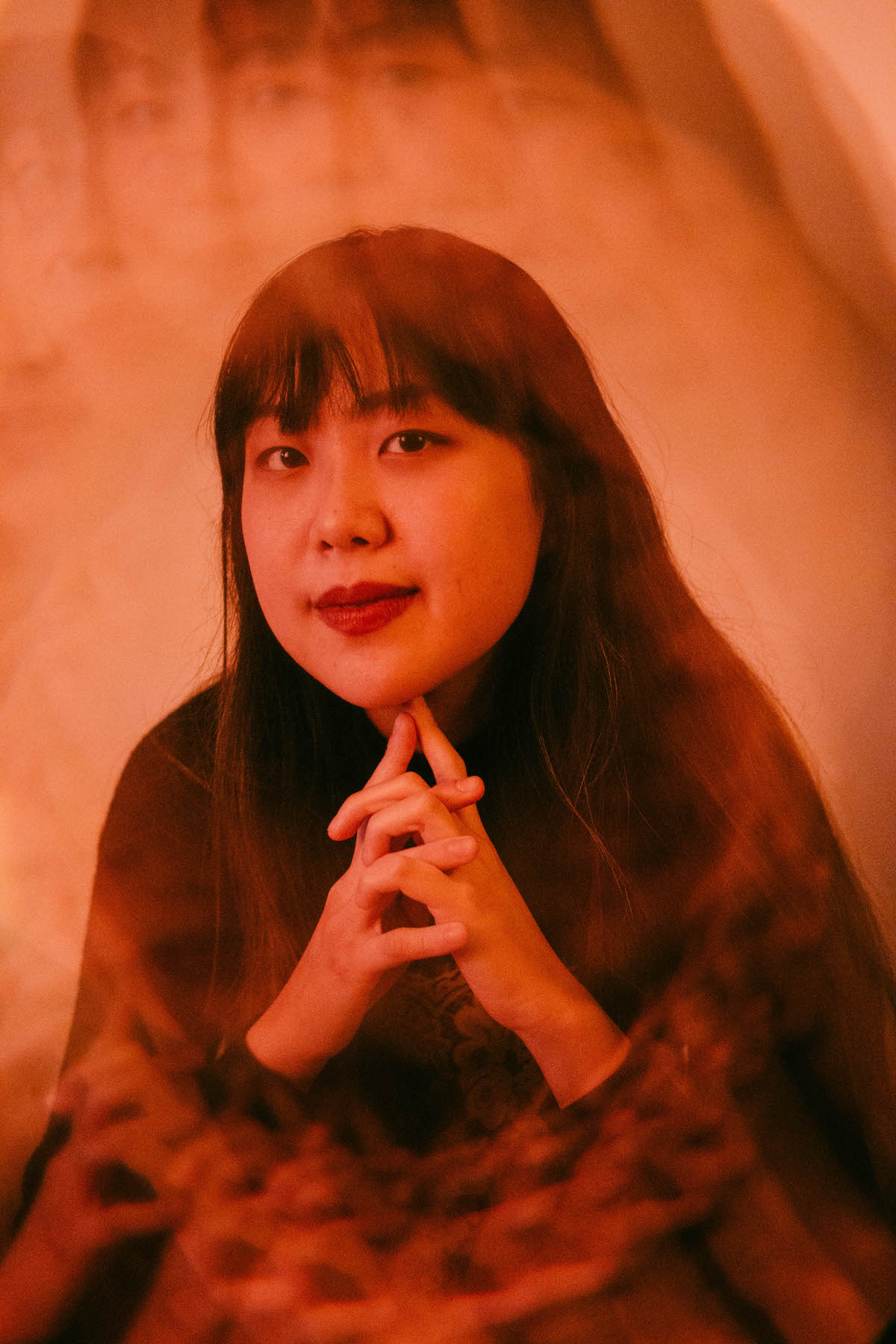
A CONVERSATION WITH PICTORIA VARK

The following conversation has been edited for clarity.
Pictoria Vark: Are you into tarot at all?
Atwood Magazine: Yes, a bit.
Pictoria Vark: Okay. So I got a tarot reading on tour at this period of pretty intense change. The reading I got was how I was feeling in that moment—4 of Swords, nothing too crazy, a little sleepy—and then what happens if I keep going at the pace I’m going, and I got the Tower. I’ve been so afraid of getting the Tower, but also I was like, ‘I know I’m getting it the next time.’
What does the Tower symbolize?
Pictoria Vark: It’s like, unforeseeable disaster; extreme change, internal or external. And I’m like, ‘Yeah, that sounds about right.’ What I wanted is the Moon, and that’s like having the time and space to reflect, something a little more tranquil, and just understanding myself and what I want. And the general future reading was the Wheel of Fortune. So all of these big, intense parts, but I think also at the same time, letting go of this one past relationship and feeling like a lot of new people have been entering my life. In every ending, there’s space for beginnings, and in death there’s life, and in life there’s death. I’ve been thinking about all of those things, and just being receptive and open to that, too. Sometimes I feel like life can happen very slowly, but also all at once. I feel like this is one of those all-at-once moments.
Totally. Especially for you, because this became a full-on career over the course of a pandemic when we’ve all been away from each other.
Pictoria Vark: Definitely. And just trying to keep on top of a lot of logistics [can be overwhelming]. I’m at Treefort alone, pretty much. My parents came to hang out and do stuff for the week, but you know, no management, no band, my label isn’t here. I’m trying to navigate everything myself, but also practice for the next tour I have, and also keep promoting this record. If I think about it too much, it won’t happen. So I’m letting my body and my eyes take over for me, trying to let them do the work. But that sometimes gets me into trouble because I have the worst sense of direction on the planet, so my brain needs to hop in sometimes.
In every ending, there’s space for beginnings, and in death there’s life, and in life there’s death.
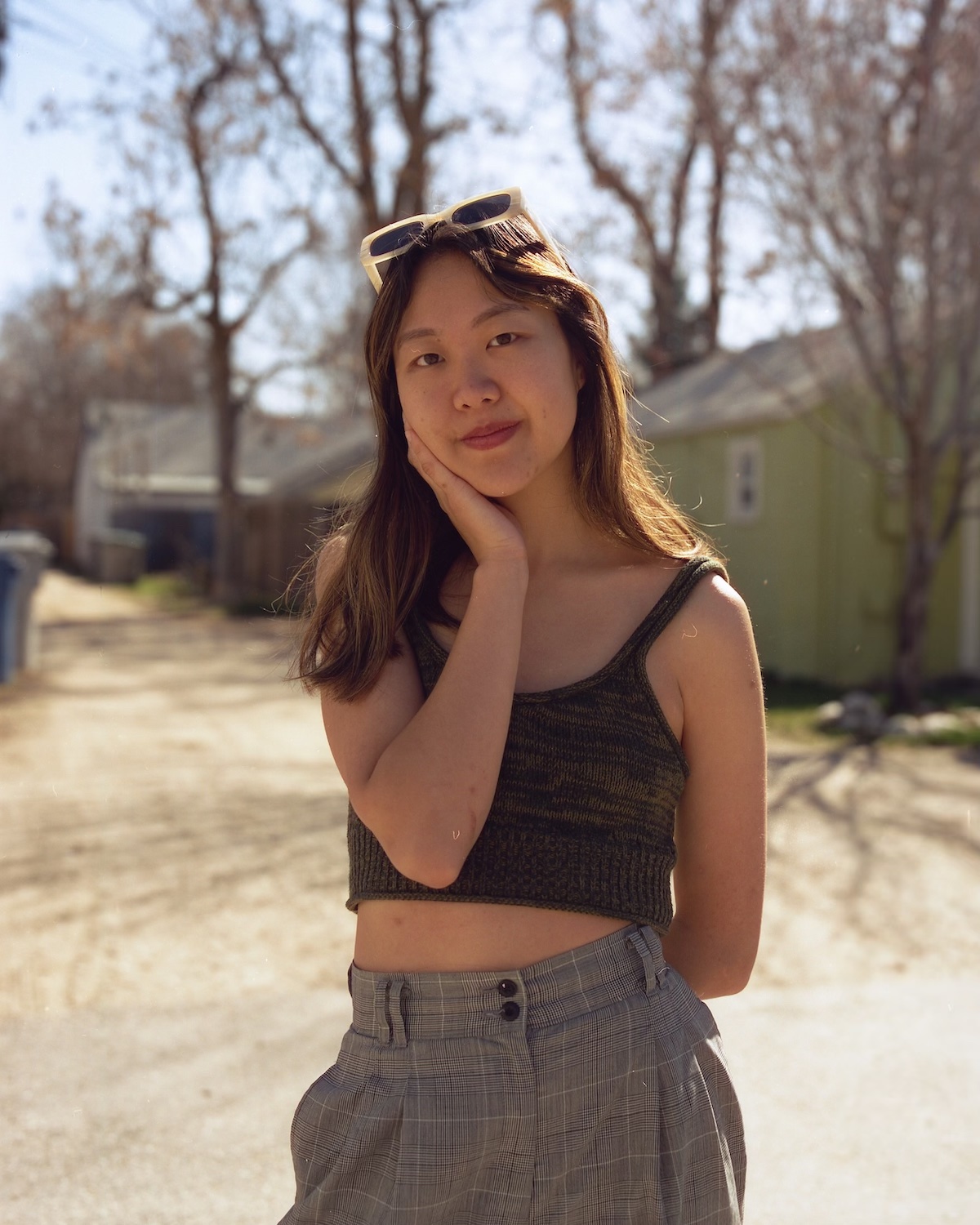
How have you coped with this experience of such rapid and sudden change?
Pictoria Vark: My coping has been listening to Sheryl Crowe a lot. (Laughs) But it’s felt really surreal. The longest tour I’d ever done before this stretch was three weeks long, and I’m basically out on the road for six months, so that shift is huge. I’m really lucky and blessed to do it, but I’m trying to take it day by day, trying to keep my head on. Treefort marks the end of my first full U.S. tour ever, and it feels like this huge, celebratory moment. I really miss Squirrel Flower and the people I was traveling with and feel really bittersweet, but now I have to be in festival mode all week. It feels like I don’t even have the time to process it or appreciate what happened—that was a big feat, and that’s not even half of it. So it’s been up and down, but it’s definitely nice to be at Treefort surrounded by a lot of really, really wonderful people, trying to invoke some more of that joy and celebration to this big end. There’s a lot of different ways that people do Treefort, and having the time to do multiple sets or a mix of literary and music stuff to break down that barrier that you often don’t get being a musician. To actually be a person and have the time to talk and invest fully creatively is just so special.
Yeah. It's important in reinvigorating yourself creatively too, getting that broader, multimedia experience. Have you been writing on the road at all?
Pictoria Vark: I’m so bad at writing on the road! I write and have a lot of creative insight after tours, or in between stuff. I wrote a whole three pages worth of stuff on the plane from Minneapolis to here. On tour, I’ve been doing a lot of drawing, actually. Drawing photos or drawing still lifes from the van, or portraits. It’s really helped me remember and document everything that happens, ‘cause so much happens so fast. That’s been really special to have, and something that I’m really excited to continue doing. Hopefully I’ll have some Treefort drawings, too.
I love that. It's nice to have multiple tactile processes.
Pictoria Vark: Totally. Having something that’s low-pressure and just being like, ‘Well, it doesn’t have to be good if I’m enjoying it.’ It will get better the more I do it. I think having that routine seems almost like meditation. Sometimes I’m like, ‘I don’t wanna meditate today,’ but I will draw. I think it counts, ‘cause it’s still causing me to focus and look, and to get in touch with what I’m seeing and really understanding it.
If I think about it too much, it won’t happen. So I’m letting my body and my eyes take over for me, trying to let them do the work
In what ways is The Parts I Dread like a meditation for you?
Pictoria Vark: I wrote this album so slowly. The oldest song is from when I was 18, and the newest song on it is from when I was 21 or 22. It feels like it’s been around in my mind for so long. [I was] documenting a lot of big shifts, moving from New Jersey to Iowa, to Wyoming, to Paris. I studied abroad in Paris, and I left at the same time my parents moved from New Jersey to Wyoming. I was 19 and not coping with it well. It’s like, you don’t have time to process that loss because you have a sense that it’s all going to end one way or another, but then to have it cut short even further… it definitely was nice to process through [making the album], to write about accepting that change even when I didn’t feel that way. But being 23 now and being in that place [now] feels really nice, and really special.
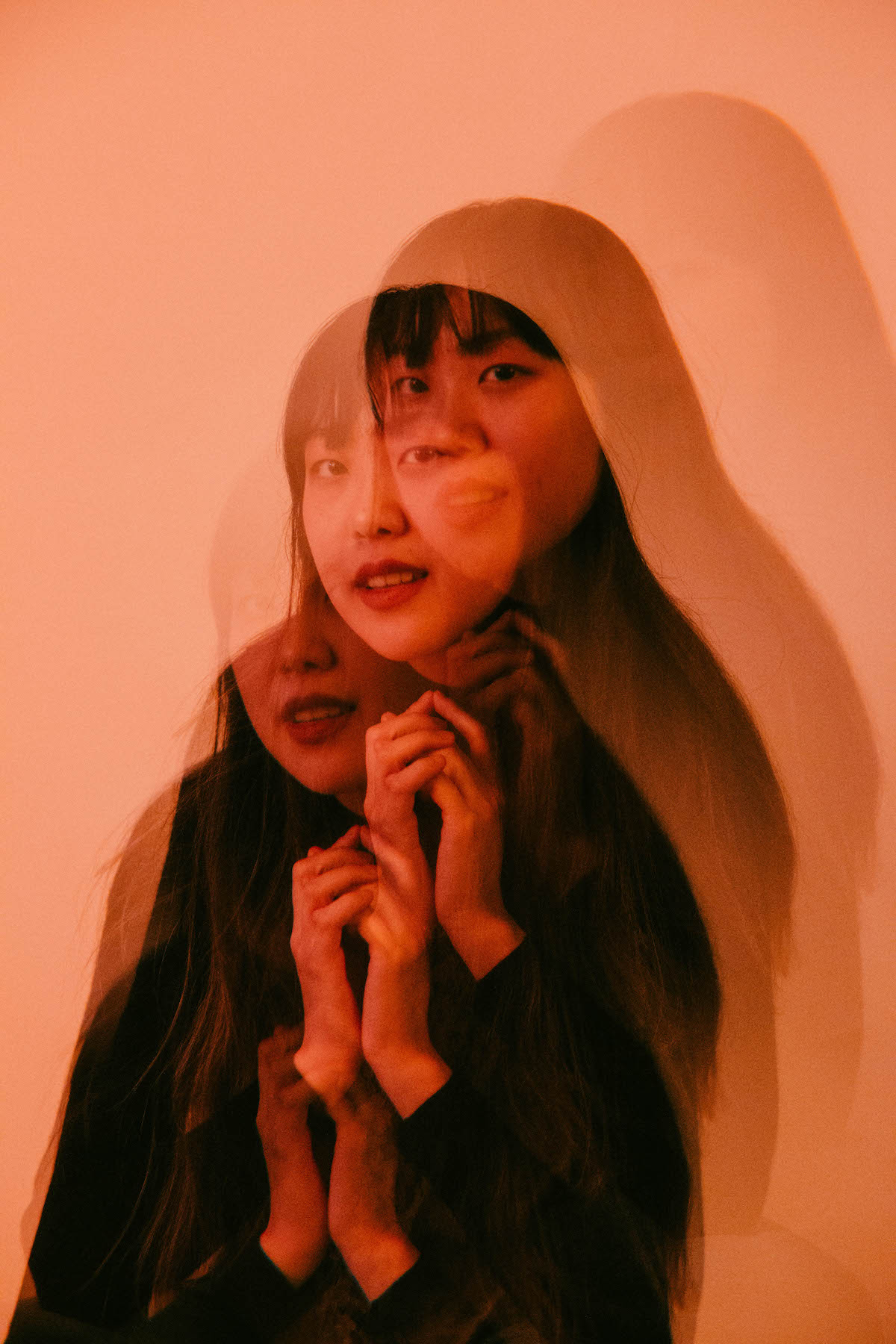
To actually be a person and have the time to talk and invest fully creatively is just so special.
What has helped you learn to make peace with change today, especially when you don't have a choice in having the space to process it when you need to?
Pictoria Vark: I think part of it was moving to Wyoming and being so immediately welcome into the DIY scene. [I was] playing shows before I even had friends there and [was also] able to tour in Colorado, and had 10 people who are my friends now come to the last Squirrel Flower show and I was like, ‘Oh, I belong up here.’ You can belong anywhere if you make the time and the space to make a place your home. I think that is really powerful to learn, that you can find home wherever you go. On “Demarest,” the second verse and chorus are about a few different bad relationships, but then in the chorus, ‘It’s not that I’m into punishment / I’m scared of changing and cognizant / There’s more to you than the parts I dread / More to live for than I know yet.’
It’s accepting that even in these horrible moments of someone at their worst, they’re still a full person, and I accept it and I can move past it [because] there’s space for other people, and other kinds of love and friendship beyond that. The Parts I Dread refers to both physical and geographic places that I’m nervous to embark to, and these emotional depths and scary thoughts about myself or other people that I’m also scared to explore — and the way that surface-level change can bring up all of these other things. Like, ‘Why am I so angry about this?’
It has to do with X, Y, and Z, too. It’s never about one thing. It’s about all of those different things at once, responding to change, and working towards acceptance.
‘The Parts I Dread’ refers to both physical and geographic places that I’m nervous to embark to, and these emotional depths and scary thoughts about myself or other people that I’m also scared to explore…
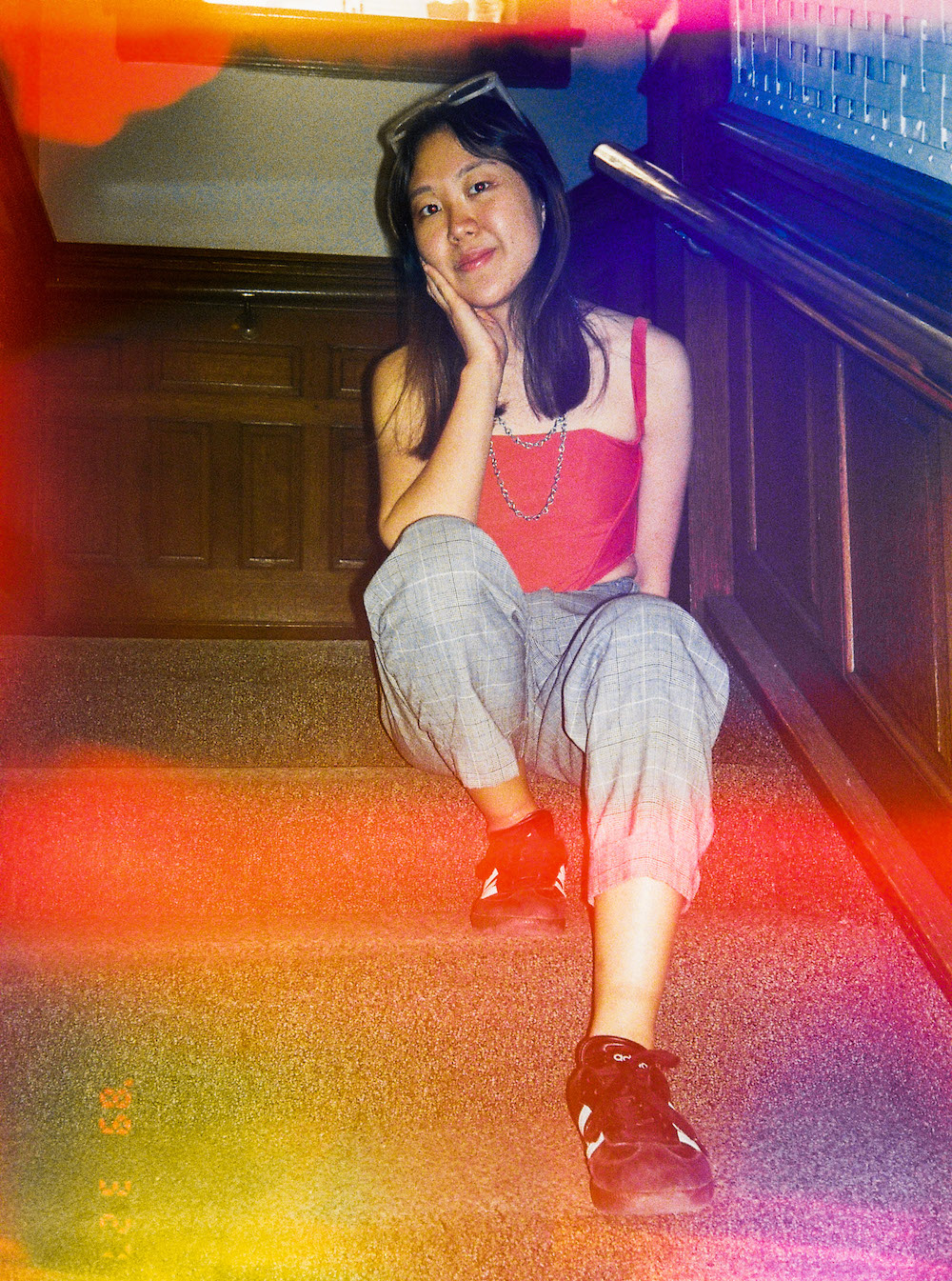
Accepting change as a constant is rough.
Pictoria Vark: It’s hard! And resistance to wanting to let things slow because it means it’s out of your control. I’m a big control freak. (laughs)
Have you been able to find any release in not having control?
Pictoria Vark: I’m working on it constantly, some days it’s better and some days it’s worse. But having the time and space to think about it and live through it, especially looking back at [the album] as a document of a time that’s a little bit removed from where I am now, I did grow past some of these things and feelings.
It’s a good time capsule, almost as if you were you reading your diary.
Pictoria Vark: Exactly. All good stuff ahead.
— —
:: The Parts I Dread is out now on Get Better Records ::
— — — —

Connect to Pictoria Vark on
Facebook, Twitter, Instagram
Discover new music on Atwood Magazine
© Sophie Prettyman-Beauchamp
:: Stream Pictoria Vark ::

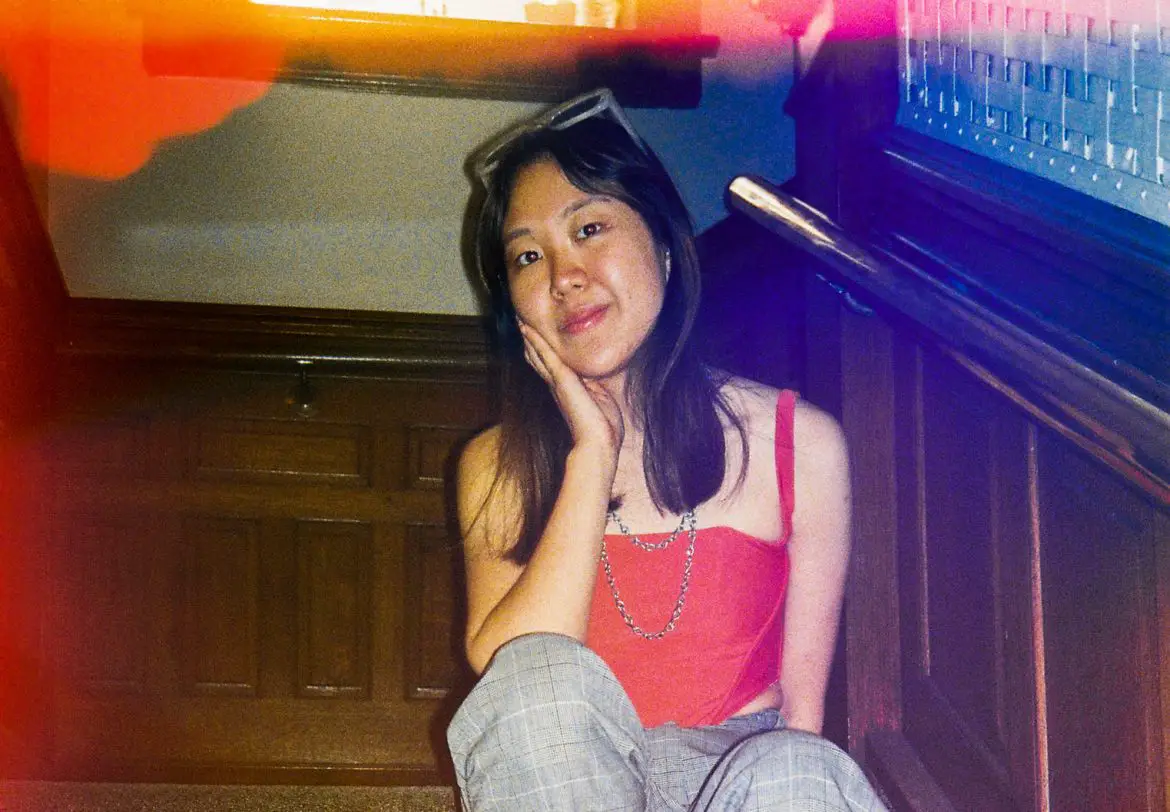
 © Sophie Prettyman-Beauchamp
© Sophie Prettyman-Beauchamp